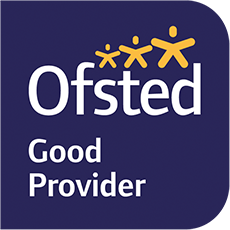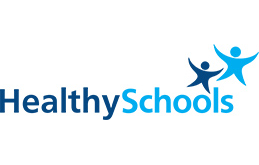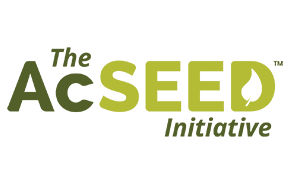SEND FAQ's
How does the school know when a child needs extra help?
At Adswood Primary School, children are identified as having SEN through the following ways:
Admissions information provided by parents and previous schools and settings
Concerns are raised by the parents/carers, teachers or the child
Ongoing feedback and assessment by the class teacher which identifies lack of progress, barriers to learning including social and emotional concerns e.g. changes of behaviour and reduced levels of engagement or concerns around child’s ability to access the provision and curriculum on offer.
Observations by specialist staff in school to inform next steps and work with parents/carers to identify where additional support is needed.
Information provided by external agencies including health diagnosis through paediatricians, speech and language assessments or through Early Help Assessments (EHA) and prevention teams that offer support to families.
What should I do if I think that my child may have Special Educational Needs?
Speak to your child’s class teacher. They are normally available after school for informal conversations but can make a longer appointment with you at a time that is mutually convenient.
If you have further concerns, contact Mrs Gee who is the school’s SEND Lead or Mr Clarke who form the Inclusion Team or Mrs Smart (Headteacher).
In some cases, we will complete a EHA with parents/carers to get a fuller picture of your child’s needs and to prioritise and plan support.
In collaboration with parents/carers we may decide to refer to external agencies to seek further support and advice.
In some cases, if several barriers to a child’s learning are identified, then a TAC (Team around the Child) meeting will be arranged where relevant agencies are invited along with parents/carers to plan a package of support to help your child.
How are decisions made about the type and level of support that my child will need?
All decisions are made collaboratively between the child, parents/carers, school staff and external agencies to ensure the best outcomes for the child.
The class teacher and SEND lead regularly discuss the child’s needs and the support that would best enable them to learn.
Different children require different levels of support and these can be quite specific to individuals.
Decisions are based upon ongoing formative assessments and reviews, external agency assessment and observations from the School Inclusion Team.
We strongly value the ongoing dialogue that we encourage staff to have with parents/carers to ensure your voice is heard and you feel supported.
How will I be involved in discussions about and planning for my child’s education?
EHCPs, SEN Support Plans and One Page Profiles are created collaboratively and parents/carers voice is valued and encouraged.
All parents/carers are encouraged to contribute to their child’s education. This may be through:
Discussion with the class teacher; informally or during parents evenings
Discussion with the School Inclusion Team, Mrs Smart and other professionals involved
Engagement with Seesaw, the schools online learning and communication platform
How will my child be able to contribute their views?
Every child’s views are captured on their One Page Profile and valued by all.
A person centred approach is adopted by the school.
Teachers discuss targets and feedback with individual children.
When reviewing individual plans and profiles, children are encouraged to contribute to their strengths, the ways that they prefer to learn and to their areas for development.
Some of the older children are invited to contribute their views to TAC (Team around the Child) and review meetings if appropriate
Regular pupil voice is collected regarding all aspects of school life.
Children are encouraged to talk to staff if they have any concerns, in particular, relating to their emotional health and well – being. The school council is regularly asked to feedback on any aspect of school life that they may be worried about or that can be improved.
How will Adswood Primary School support my child?
Each child’s views and opinions on their own learning is central to our inclusive provision in school. Every child in school has a One Page Profile.
Every child who has SEND identified will have a SEN Support plan or an Education, Heath and Care Plan (EHCP) if deemed necessary via rigorous assessment.
Continuous dialogue between class teams and children is used to ensure children’s understanding of their next steps. Opportunities for pupil voice are regular and shared with all staff.
Each child’s education programme will be planned by the class teacher. It will be differentiated accordingly to suit the child’s individual needs. This may include additional general support by the teacher or teaching assistant in class.
If a child has needs related to more specific areas of their education, such as phonics, numeracy, literacy, speech and language, social skills development or motor skills, then the child will receive additional support in this area. This will be planned by the class teacher, a specialist teacher or one of our teaching assistants. The additional support will be regularly reviewed by all involved to check the effectiveness of the provision and to inform future planning for the child. Additional support is recorded on each child’s SEN support plan. Each child’s level and category of need is recorded on SIMs (this is an electronic record relating to each pupil).
Pupil progress meetings are held each term. This is a meeting where the class teacher meets with the Senior Leadership Team to discuss the progress of the children in their class. This shared discussion may highlight any potential problems in order for further support to be planned.
Each class team is fully supported by the School Inclusion Team throughout the year. The School Inclusion Team hold cohort transition inclusion meetings with staff teams during the Summer Term and interim inclusion meetings in January.
The class teacher will meet with you at Parents’/Carers’ evening in the Autumn and Spring Term and is available to meet with you following end of year reports. The class teacher and SEND Lead are available to meet you to discuss ongoing concerns and to celebrate your child’s strengths.
Occasionally a child may need more expert support from an outside agency such as Learning Support Service, Speech and Language Service, Occupational Therapy service, Educational Psychologist, Behaviour Support Service, HYMS or Primary Jigsaw. A referral will be made, with your consent and forwarded to the most appropriate agency. After a series of assessments, a programme of support is usually provided to the school and parents/carers. This could include additional advice for the class teacher or more specialised one – to – one or small group support within school. This co-production informs your child’s support plan.
Your child’s support plan will be reviewed at least three times per year however this may be more frequent depending on each child’s specific needs.
The school employ a Speech and Language Therapist for one day per week to enable timely access to SALT assessment, intervention and universal provision.
Our SEND lead oversees and co-ordinates the provision and access to services for any child requiring additional support in addition to supporting parents/carers to understand their child’s needs and how to support them at home.
The Governors of Adswood Primary School are responsible for entrusting a named person, Mrs Gee, to monitor SEND. Mr Clarke monitors Safeguarding and Child Protection procedures. The responsibility of the Governors is to provide both support and challenge to the Headteacher and staff so that the school is as inclusive as possible and that all children and staff are treated in a fair and equitable way. The Governors monitor and review the accessibility plan and all other statutory policies as defined by the Department for Education.
How will the curriculum be matched to my child’s needs?
Your child’s strengths will be celebrated and the curriculum will carefully planned to utilise these strengths to ensure their emotional wellbeing is paramount.
We will have high expectations for your child and support them to strive to achieve their potential.
When a child has been identified as having SEN, their work and support will be differentiated by the class teacher to enable them to access the curriculum. For some children with significant complex needs, this could include a personalised timetable to accommodate additional interventions, provision and support that they need.
We will adapt the learning environment to ensure that each child can thrive.
Teachers and Teaching assistants will work with the children in a one to one or small interventions group to target more specific needs.
If a child has been identified as having SEN, a SEN Support Plan will be created collaboratively with parents/carers and the child. Targets will be set according to their area of need. The outcomes will be monitored by the class teacher and reviewed during the year with parents/carers and the child.
If appropriate, specialist equipment may be arranged for the child to aid their learning eg, pencil grips, easy to use scissors, concentration tools, specialist seating or cushions and we will seek specialist advice where necessary.
How will I know how my child is doing?
The School Inclusion Team are always visible and available at the start and the end of the day to offer you support, discuss immediate concerns and arrange appointments when needed.
You will be able to formally discuss your child’s progress at Parents Evenings but are welcome to make an appointment to speak to your child’s class teacher, Mrs Gee, Mr Clarke or Mrs Smart.
Your child will receive a detailed written report at the end of each academic year. In addition, all parents with children who have an identified special need, will meet with the class teacher (and in some cases, specialist teachers providing additional support) on a termly basis to review and update SEND Support Plan.
How can I work with the school to support my child’s learning?
The class teacher may suggest ways of how you can support your child at home. This is in addition to home learning advice which is provided each week via Seesaw.
You may be given specific advice to support your child’s learning further during review meetings which are held to discuss progress and to set new targets for learning
The Inclusion team may meet with you to discuss how to support your child with strategies to use if there are difficulties with your child’s behaviour or if they need additional support to improve their emotional health or well-being. This could include signposting you to a member of the Primary Behaviour Support Service or Primary Jigsaw to offer more specialist advice.
If outside agencies or the Educational Psychologist have been involved, suggestions and programmes of study are normally provided that can be used at home.
What support will there be for my child’s overall well-being?
Adswood Primary School offers a wide variety of pastoral support for children and their families
These include:
Members of staff such as the class teacher, Mr Clarke (Pastoral and Care Manager), Mrs Gee (SEND Lead) and Mrs Smart are readily available for children and their parents who wish to discuss issues and concerns.
Lessons are planned for all year groups to support understanding of feelings and emotions, along with where to access support if needed.
The School Inclusion Team work with small groups and individual children on a variety of nurturing activities, including time for children to discuss their concerns, developing social skills, and supporting transition to secondary school for some children that need additional time to support a successful transition.
Specialised support for some children is available through Primary Behaviour Support Service and Primary Jigsaw. This can include one to one support for a number of sessions, normally taking place within the school day, along with support and advice for parents and carers.
What support is there for behaviour, avoiding exclusions and increasing attendance?
Realtionships are at the heart of everything we do.
Mr Clarke (Pastoral Care Manager) leads Restorative Approaches consistently across all age phases, to enable children to reflect on their own behaviour and relationships with others.
We have a positive approach to all types of behaviour management and a consistent system of rewards and sanctions.
This is understood by children and staff and followed consistently.
If a child needs additional support, strategies are identified in consultation with professionals, parents/carers and children and are outlined in their SEND Support Plan. This is reviewed on a regular basis with the class teacher, parents/carers and the child. If needed, a My Plan is implemented and task sheets are used to support the child’s engagement and behaviour for learning.
Behaviour needs that are consistent or of a high level of concern are recorded on CPOMS and then referred directly to the SLT. Parents/carers are contacted so that school and home can work together to improve behaviour.
Al children have access to ‘Mindspace’ and the inclusion room when needed to help them to regulate their emotions and receive emotional coaching. The School Inclusion Team are always available to support this provision
Morning check-ins are available for children needing additional support upon arriving at school and throughout the day and regular home/school contact is in place.
Our exclusion rate is very low and continues to reduce further as a result of Restorative Approaches. It is reported to governors termly. On the very rare occasions that we have made an exclusion we have seen a long term improvement and parents/carers have ensured that this is an effective measure by supporting us.
Our administrative team works closely with the Education Welfare Officer to monitor lateness and attendance.
The school has a structured system for following up concerns around attendance and lateness and aims to work in a supportive way to overcome obstacles to full attendance.
Pupils with medical needs
The school’s Managing Medical Conditions Policy is in line with guidance from the Local Authority .
Staff have regular training and updates of conditions and medication so that they are able to manage medical situations that may arise. This includes Asthma, Epilepsy and Diabetes training and has included training on the use of EpiPen’s.
If a pupil has a specific medical need, then a detailed Health Care Plan is compiled with the school nurse and in consultation with parents/carers.
The SEND Lead communicates regularly and efficiently with all NHS services and Paediatricians to ensure that all needs are communicated well.
How accessible is the school environment?
The Accessibility Plan is available on the school website.
Our school environment is fully accessible and includes several rooms that are used for small group interventions, a ramp to enable children and parents/carers with limited mobility movement from one part of school to another and a wet room for some pupils with additional medical needs.
We have a strong link with the Ethnic Diversity Service to enable us to support children with English as an Additional Language.
How will my child be included in activities outside of the classroom including school trips?
We believe that all children should be included in all parts of the school curriculum.
We aim for all children to be included on school trips and will endeavour to provide the necessary support, making reasonable adjustments.
A risk assessment is carried out prior to any off site activity to ensure that everyone’s health and safety needs are accounted for. This may include additional one to one support to enable a child to take part in a trip.
In the very unlikely event that it is considered unsafe for a child to take part in an activity, alternative activities will be arranged that will cover the same curriculum areas.
What specialist services and expertise are available at or accessed by the school?
At times it may be necessary to consult with outside agencies to receive more specialised expertise to help school and parents/carers to best support their child. These can include:
GPs
School Nurse
Educational and Clinical Psychologists
Paediatricians
Speech and Language Therapists
Occupational Therapists
Sensory Support Service
Physiotherapists
Ethnic Diversity Service
Signpost Young Carers
Social Services
School Age+ Workers
Health Visitors
Learning Support Services (LSS)
Behaviour Support Services (BSS)
Parent Partnership
Primary Jigsaw (Emotional Health and Wellbeing)
HYMS (Healthy Young Minds Services)
An educational psychologist is allocated to the school. He/she normally only works with children who have significant additional needs whom have an EHCP or are in the process of an EHC needs assessment referral. The psychologist will provide advice to both parents/carers and the school once assessments and observations have been completed.
What training are the staff supporting children and young people with SEND had or are having?
Mrs Gee (SEND Lead) has completed the National Award for Special Education Needs Coordinator (NASENCO).
Mr Clarke (Pastoral Care Manager) is a qualified counsellor (MSc Counselling and Psychotherapy).
All members of staff have received training to support children with additional needs within the classroom, including children with specific learning difficulties.
All staff have received additional training on ways to support children with speech and language difficulties, autism, attachment, trauma, anxiety, dyslexia, ADHD, Restorative Approaches, Metacognition and Motor Skills United.
Each half term staff receive training from Mr Clarke regarding emotional wellbeing.
All staff receive regular training to develop their skills in addressing pupil misconceptions in maths and literacy, phonics training and training in managing pupil behaviour.
All staff access SEN clinics where training is available from SALT, OT, BSS and LSS.
How will the school prepare my child for joining the school and transferring to a new school?
Many strategies are in place to enable a child’s transition to be as smooth as possible. These include:
We encourage all new children to visit the school prior to starting so that they can become familiar with the staff and our working environment. This will include transition sessions for parents and children and home visits from staff in our Foundation Stage prior to starting school
We have transition meeting with prior settings and seek support from the Team Around the School to support transition
If necessary and appropriate, we can arrange additional visits for children with specific transition needs. We are happy for parents/carers to request these.
Mrs Gee and the Foundation Stage staff are happy to meet parents for further discussion on specific needs prior to their child starting school.
All children in school have transition sessions with their future class teacher during the summer term, each pupil and staff member will complete a One Page Profile and a transition plan for their new teacher to aid transition. Parents/carers are invited to meet their child’s future class teacher at an Open Evening. Additional transition reviews for children with a high level of need and EHCP will be arranged.
For transition to high school we liaise with the schools involved and arrange visits.
Some children benefit from extra visits and we arrange Transition Meetings if necessary, for children with a higher level of need and EHCPs. Parents are invited to attend these. The Inclusion Team work with children who need additional support to make a successful transition to secondary school.
We have handover meetings with SEN staff from our feeder Secondary Schools and liaise with the SEN departments of other high schools as necessary to ensure that we share our in-depth knowledge of each child with SEN.
All relevant paper work is transferred via a safe system.
How are the school’s resources allocated and matched to the needs of an SEN child?
The SEN budget is allocated each financial year. The money is used to provide additional support or resources dependent on an individual’s needs. The Headteacher and School Business Manager decide on the budget for SEN in consultation with the school Governors, on the basis of the needs of the children currently in the school.
Resources are allocated, including the deployment of staff for individual children or groups of children, based upon an assessment of needs for each child following pupil progress meetings. This will include a discussion on children already receiving extra support, children needing extra support and children who have been identified as not making as much progress as would be expected.
The allocation of our budget is monitored by the Governors and the Local Authority. All resources and training and support are reviewed regularly and changes made as needed.
If your child receives additional top up funding from an EHCP or has access to a Personal Budget, the way in which this is spent will be planned collaboratively to ensure the best possible outcomes for the individual.
Who can I contact for further information?
The first point of contact is your child’s class teacher.
Your next point of contact is the SEND lead Mrs Gee or the Headteacher, Mrs Smart.
Mrs Smart and members of staff from the Foundation Stage are happy to speak to prospective parents. Please contact the School Office to arrange an appointment.
You can also contact Parent Partnership on 0161 286 4230
What to do if I have a complaint:
All complaints will be taken seriously and treated with care and sensitivity.
If you have any comments or concerns please address them to the SEND Lead or the Inclusion Team in the first instance. The majority of concerns expressed by parents are dealt with on an informal basis within the school itself. If you feel the situation isn’t resolved then the next step is to contact the Headteacher. If it cannot be resolved at this stage, the parent / carer is directed to the Chair of Governors. Information regarding the formal grievance process can be found here.






